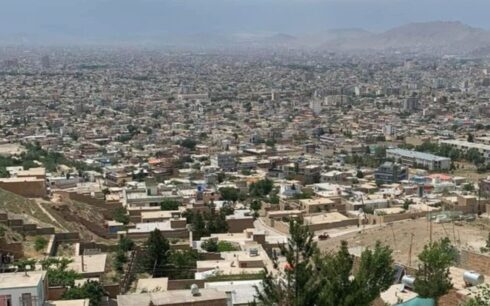KABUL, Afghanistan — In response to the Taliban’s renewed enforcement of a ban on women working in non-governmental organizations (NGOs), the Agency Coordinating Body for Afghan Relief and Development (ACBAR) issued a set of detailed recommendations on Sunday to ensure female staff in health and education sectors can continue working under the restrictions.
The organization’s Immediate Response Team emphasized compliance measures, including full hijab requirements, separate facilities for female employees, and documented justification for their presence in offices.
The letter, dated December 26, 2024, reaffirmed the Taliban’s enforcement of a December 2022 directive and warned that non-compliance could result in the suspension of operations or revocation of licenses for NGOs.
In response, ACBAR held a meeting with the Taliban-run Ministry of Economy on Sunday, December 29, to address the implications of the directive and to clarify how NGOs can comply while maintaining critical operations.
Exemptions and updated guidelines
ACBAR emphasized that while the general ban remains in effect, specific exemptions apply to women working in health and education sectors. Additionally, the Taliban provided updated rules that NGOs employing female staff must follow:
Remote Work: Women working remotely (online) may continue their roles.
Travel Requirements: Female staff commuting to fieldwork or workplaces must be accompanied by a male guardian (mahram).
Hijab Enforcement: Women must observe full hijab at all times, including in transit and within the office.
Separate Facilities: NGOs must provide female staff with designated entrances, rest areas, and prayer spaces.
Workplace Justification: The presence of female employees in offices must be documented and justified, particularly in health and education roles.
ACBAR’s recommendations for NGOs
ACBAR’s Immediate Response Team issued further recommendations to help NGOs navigate the restrictions:
Compliance and Sensitization: All staff, especially female employees, must be briefed on the new regulations, and organizations should be prepared for inspections by Taliban officials.
Facility Adjustments: Separate facilities for female staff must be implemented where possible.
Incident Reporting: NGOs are encouraged to report any challenges or irregularities caused by the restrictions to ACBAR for further action and advocacy.
The organization also advised NGOs to adapt quickly to the guidelines to mitigate their operational impact while continuing to serve Afghanistan’s most vulnerable populations.
Impact on female workers
Although women in health and education sectors are allowed to work under these conditions, the restrictions pose significant logistical challenges for other female employees. Requiring a male guardian and strict dress codes, even within offices, limits mobility and complicates daily operations.
ACBAR acknowledged these challenges but emphasized its commitment to supporting female staff and ensuring critical humanitarian operations continue uninterrupted.
A Pattern of increasing restrictions
Since returning to power in 2021, the Taliban have imposed progressively stricter limitations on women’s participation in public life, including education and employment. The initial NGO work ban in 2022 faced widespread international condemnation. The latest letter reaffirms that ban, while introducing detailed conditions under which women can still work in specific roles.
Afghanistan remains one of the world’s most acute humanitarian crises, with millions dependent on aid delivered by NGOs. Many of these organizations rely on female workers to provide essential services, particularly in maternal health and education, areas where male staff often cannot operate due to cultural barriers.





